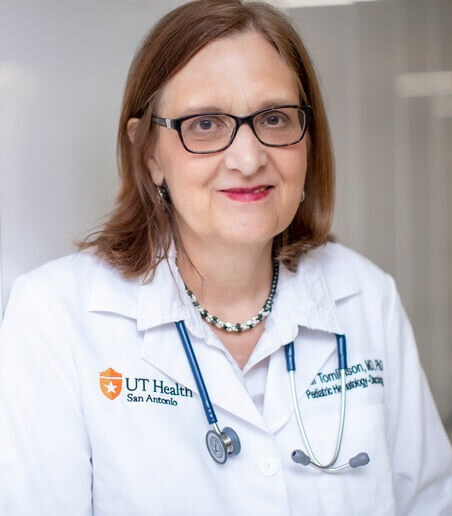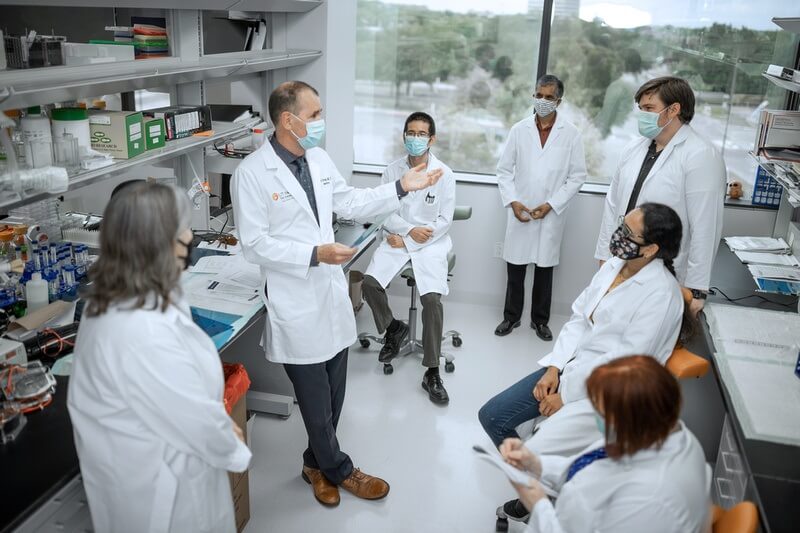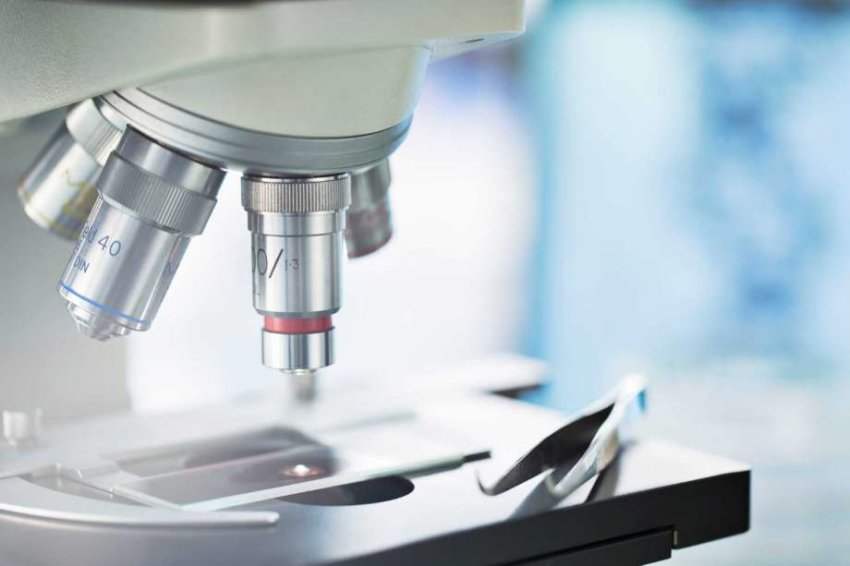Contact: Will Sansom, (210) 567-2579, sansom@uthscsa.edu
SAN ANTONIO (Feb. 17, 2022) — The University of Texas Health Science Center at San Antonio (UT Health San Antonio) is receiving $10.9 million in new research and faculty recruitment awards announced Feb. 16 by the Cancer Prevention and Research Institute of Texas (CPRIT). The statewide cancer agency has now awarded $128.7 million to UT Health San Antonio since 2010.
A five-year, $6 million CPRIT Recruitment of Established Investigators award — one of only three awarded statewide in this round of funding — is helping UT Health San Antonio to recruit Reuben S. Harris, PhD, professor of biochemistry, molecular biology and biophysics and associate director of the Institute of Molecular Virology at the University of Minnesota. Dr. Harris will be appointed professor and chairman of the Department of Biochemistry and Structural Biology in the health science center’s Joe R. and Teresa Lozano Long School of Medicine.
Transformative for San Antonio
“Dr. Harris emerged as our top candidate for the biochemistry chair position for his scientific leadership in two important areas, namely molecular virology and his seminal work in identifying DNA mutagenic pathways that help shape the cancer genome, especially in triple-negative breast cancer,” said Patrick Sung, PhD, professor of biochemistry and structural biology and newly appointed director of the Greehey Children’s Cancer Research Institute at the health science center. Dr. Sung co-chaired the national search with Jennifer Sharpe Potter, PhD, MPH, vice president for research.
Dr. Harris will bring substantial funding from the National Cancer Institute for research to be performed in conjunction with the Mays Cancer Center, home to UT Health San Antonio MD Anderson Cancer Center. “The recruitment of Dr. Harris will be transformative for UT Health San Antonio in becoming a leading center of molecular virology and mechanistic cancer biology,” Dr. Sung said.
“The Mays Cancer Center is thrilled by the great impact of these CPRIT awards to advance our research efforts against cancer in South Texas through both innovative projects and the crucial recruitment of Dr Harris to our center,” said Ruben A. Mesa, MD, FACP, executive director of the Mays Cancer Center.
Preventing cancer in children

A $1.95 million prevention and early detection research award from CPRIT to Gail E. Tomlinson, MD, PhD, will support screening in children and adolescents genetically at high risk of cancer. Dr. Tomlinson is a professor of pediatrics in the Long School of Medicine who occupies the Greehey Distinguished Chair in Genetics and Cancer.
“Using a framework of expert recommended cancer screening guidelines for children at highest risk of cancer, we will determine the feasibility of screening for cancer in children in some of the most underserved areas of Texas including the southern and western border areas,” Dr. Tomlinson wrote in the project summary. “We will define barriers to screening and devise and test interventions to enhance screening. We will address health care system limitations to screening. This project is highly significant as cancers in children with a cancer genetic risk factor account for 10-15% of all childhood cancer, and in many cases early detection can improve survival.”
Obesity-induced liver cancer
A $1.05 million CPRIT award will support studies of obesity-induced cancer conducted by Masahiro Morita, PhD. Dr. Morita is an assistant professor in the Department of Molecular Medicine and an investigator with the Sam and Ann Barshop Institute for Longevity and Aging Studies at the health science center. The project title is “Organelle communication during transition from fatty liver to hepatocellular carcinoma.” One goal is to make discoveries that will lead to new preventive and therapeutic strategies to reduce the toll of obesity-induced liver cancer.
Empowering immunotherapies
A $969,471 CPRIT award to Alexei Tumanov, MD, PhD, associate professor in the Department of Microbiology, Immunology and Molecular Genetics, will support studies aimed at developing effective and safe cancer immunotherapies. A molecule called CD137 is a powerful target for immunotherapy, but in studies its administration promotes liver toxicity. Dr. Tumanov and his team will study an immune molecule that regulates this.
“If successful, this CPRIT-supported study will be a game changer, as it will remove liver toxicity, a critical roadblock of anti-CD137 and other cancer immunotherapies,” Dr. Tumanov said.
BRCA1 cancer research

A CPRIT grant of $889,587, awarded to Robert Hromas, MD, FACP, professor of medicine, vice president for medical affairs of UT Health San Antonio and dean of the Long School of Medicine, will support studies of a small RNA segment called miR223-3p that might be a novel therapeutic agent in BRCA1 cancers.
“We believe that miR223-3p is a key suppressor of transformation to malignancy in breast cells with mutated BRCA1,” Dr. Hromas said. “In this study, we will investigate how BRCA1-mutant cells repress miR223-3p expression and whether that repression is important for cancer formation in mice that lack all BRCA1 in their normal breast cells.”
Impact on multiple levels
Dr. Hromas gave a brief interview Feb. 16 in answer to the following questions:
How would you describe the economic impact that CPRIT-supported faculty recruitments are having on San Antonio?
Dr. Hromas: The economic impact on San Antonio of these recruits is huge. These scientists interact with and support the other research institutions in San Antonio, such as Southwest Research Institute, Texas Biomedical Research Institute and The University of Texas at San Antonio, and provide them added expertise, increasing their potential for new grants and contracts. The new laboratories these scientists lead provide more than 100 well-paying jobs. These recruits train a large number of new scientists who will staff the other research institutions in San Antonio. These laboratories also buy supplies and reagents from San Antonio manufacturers, enhancing the economy directly.
What is the impact these new labs have on our cancer research programs?
Dr. Hromas: All of these investigators are synergistic with each other and the scientists already here. They all focus on pathways by which cancer cells escape cell death, and how blocking these pathways can treat currently incurable cancers.
Is there an impact on patients?
Dr. Hromas: These recruits will lead to new cancer treatment programs by discovering new compounds that block these death escape pathways. They will use our CPRIT-funded Center for Innovative Drug Discovery to identify new compounds that can prevent cancer cells from escaping the normal cell death pathways. They could single-handedly create a large pharmaceutical effort in San Antonio.
The University of Texas Health Science Center at San Antonio, also referred to as UT Health San Antonio, is one of the country’s leading health sciences universities and is designated as a Hispanic-Serving Institution by the U.S. Department of Education. With missions of teaching, research, patient care and community engagement, its schools of medicine, nursing, dentistry, health professions and graduate biomedical sciences have graduated 39,700 alumni who are leading change, advancing their fields, and renewing hope for patients and their families throughout South Texas and the world. To learn about the many ways “We make lives better®,” visit www.uthscsa.edu.
Stay connected with The University of Texas Health Science Center at San Antonio on Facebook, Twitter, LinkedIn, Instagram and YouTube.


